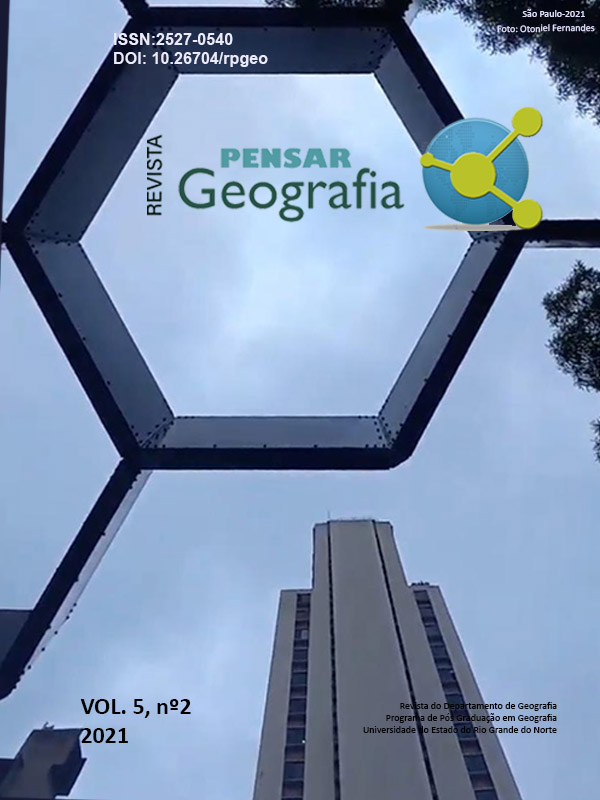OS INSTITUTOS FEDERAIS DE EDUCAÇÃO, CIÊNCIA E TECNOLOGIA E SUA RELEVÂNCIA NA PRODUÇÃO DE PESQUISAS, PRODUTOS E PATENTES NO NORDESTE DO BRASIL
DOI:
https://doi.org/10.26704/pgeo.v5i2.3733Keywords:
Patentes, Inovação, Tecnologia, Instituto Federal de Educação, Ciência e TecnologiaAbstract
The changes related to the accelerated industrialization and urbanization initialized in the 1950s created new forms and contents in the Brazilian territory. This could be exemplified by the creation of Federal Institutes of Education, Science and Technology (FIs), which reach nine states in the Brazilian Northeast. The paper question about the relevance of FIs for the creation of products and patents, considering in which magnitude this aspect is related with the paradigms of a human and smart city proclaimed by the Brazilian Network of Human, Smart, Creative and Sustainable Cities. We tried to understand the Federal Institutes (FIs) as geographic fixed that compose the knowledge infrastructure of its surrounding region, and that favors new dynamics in the municipalities in which they are installed. The methodology comprises bibliographic and documentary survey of journals, newspapers, dissertations, and doctoral theses. As a result of the research, was created a database from the information collected at the National Council for Scientific and Technological Development (CNPq), and from research carried out on the websites of the FIs. The data obtained were used to produce maps, figures and tables that corroborate the relevance of the FIs and their contribution to favoring research, products, and patents. Finally, the results also contribute with the reflection on the grade of selectivity, differentiation, and social inequality arising from the establishments of agendas of human and smart cities in the studied region.







